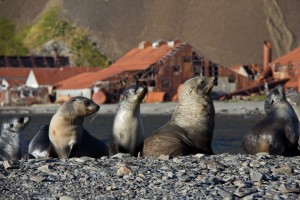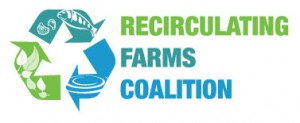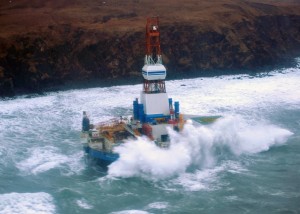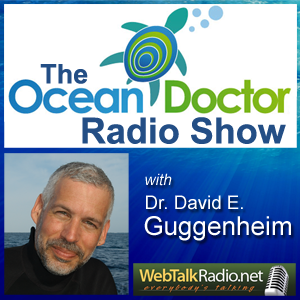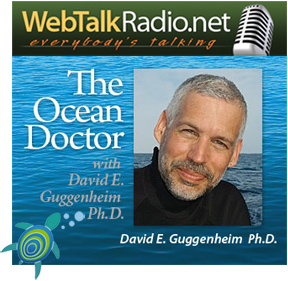Why We Won’t Quit the Caribbean
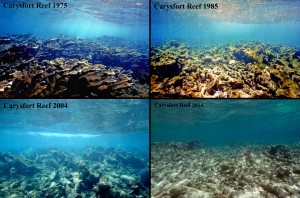
A dramatic time series of photos documenting the 95 percent loss of coral cover from Carysfort Reef, Key Largo, Florida since 1975. The photos capture the loss of a once thriving colony of elkhorn coral, Acropora palmata (Photos: Phil Dustan)
You wouldn’t know it from the colorful travel ads, but beneath the Caribbean’s sublime azure surface, the story of is one of utter mayhem.
A major report released earlier this year, the most comprehensive to date, puts it clearly and bluntly: Without swift and meaningful action, “Caribbean coral reefs and their associated resources will virtually disappear within just a few decades…” There has been an average decline of coral cover in the Caribbean of more than 50 percent since 1970.
The reefs I so delighted in as a teenager in the Florida Keys are today heartbreaking and unrecognizable. Live coral is estimated to be less than 20 percent of what it was in the early seventies when I first dove there.
Statistics like these make it easy for one to abandon hope, and indeed, many have. The report states, “Concerns have mounted to the point that many NGOs [non-governmental organizations, nonprofit conservation organizations and funders] have given up on Caribbean reefs and moved their attentions elsewhere.” But Ocean Doctor hasn’t given up on the Caribbean — we’re in it for the long-haul, dedicated to restoring Caribbean coral reefs to their former glory. And we’ve found a new reason to be optimistic. Read more



